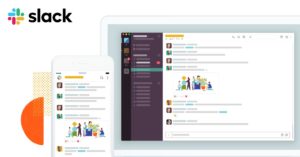Cloud-native Authorization with Tim Hinrichs
Podcast: Play in new window | Download
Subscribe: RSS

Transcript
Transcript provided by We Edit Podcasts. Software Engineering Daily listeners can go to weeditpodcasts.com to get 15% off the first three months of audio editing and transcription services with code: SED. Thanks to We Edit Podcasts for partnering with SE Daily. Please click here to view this show’s transcript.
Sponsors
The Google Cloud and DORA research team recently launched the 2022 industry wide survey to collect insights for the 2022 State of DevOps report and would love your input!
The Accelerate State of DevOps report is the largest and longest running research of its kind, providing insight into how we can improve software delivery performance with DevOps. By completing the survey, you get to shape the conversation surrounding DevOps along with over 32 thousand software professionals who took the survey over the past seven years.
So what are you waiting for? Take the survey at cloud.google.com/devops
You there! Are you suffering from an acute case of Kubernetes? Are your services unobserved? Your traffic unencrypted? Your failover strategy a mess of shell scripts? We have the cure for you! Linkerd, the fastest, lightest service mesh on the planet. Linkerd’s ultralight Rust-based proxies give you instant health metrics, zero-config mutual TLS, retries, gRPC load balancing, cluster failover, and more. Best of all, Linkerd is 100% open source, and is now available as a fully managed service right on your own cluster from Buoyant, the creators of Linkerd.
You can build permissions yourself – But you don’t have to! Permit is a full-stack permissions framework helping developers bake access control into their cloud-native applications within minutes. Stop wasting time building permissions from scratch and having to rebuild them again and again at scale across complex, distributed applications. Permit leverages the power of open-source, provides all of the required infrastructure to implement end-to-end permissions, and offers an easy-to-use, no-code front-end UI, all out of the box. Get started at Permit.io.
Datadog is a cloud-scale monitoring and analytics platform. Datadog integrates with more than 450 technologies, including Cloud Foundry, Docker, Kubernetes, and Kafka, so you can get deep visibility into every layer of your applications and infrastructure—in the cloud, on-premises, in containers, or wherever they run. With rich dashboards, machine learning-powered alerts, and distributed request tracing, Datadog helps teams resolve issues quickly and release new features faster.
Start monitoring your dynamic cloud infrastructure today with a 14-day trial. Listeners of this podcast will also get a free T-shirt for trying Datadog! Get started today with a free trial at softwareengineeringdaily.com/



















